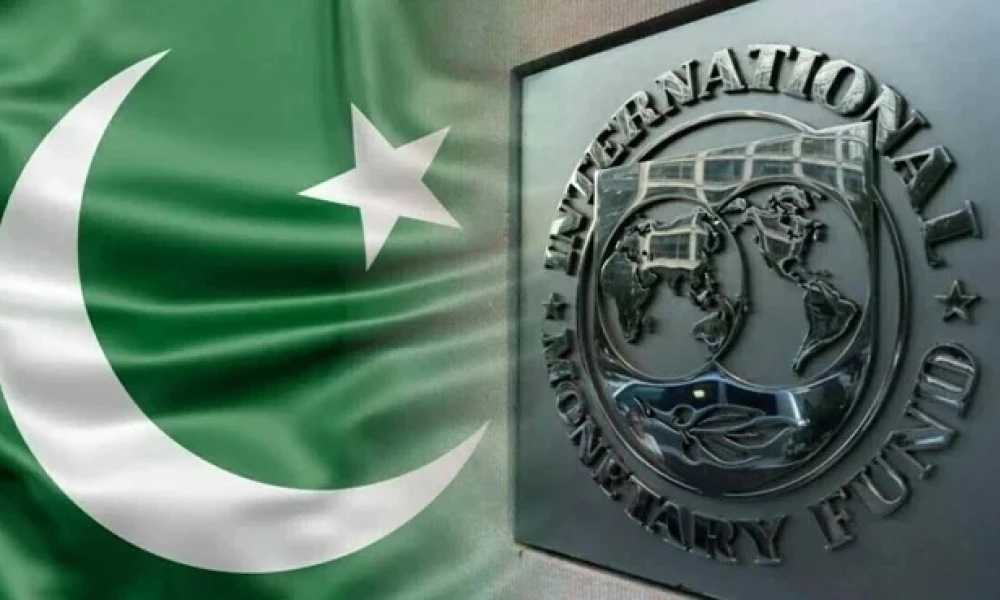Islamabad: Pakistan economic managers have conveyed IMF technical team that the country is aiming for 3.6% GDP growth with total budget size of Rs 26 Tln. Revenues will be around Rs 20 trillion and inflation to be targeted around 7.7%.
The Government of Pakistan and the International Monetary Fund (IMF) are currently engaged in virtual technical discussions focused on the formulation of the upcoming federal budget.
These talks are set to enter the policy-level stage from May 19 and will continue until May 23. The federal budget is expected to be formally presented on June 2.
According to sources, the total revenue for the next fiscal year may reach Rs 200 trillion, with the government setting a revenue target of Rs 190.9 trillion.
This includes collections by the Federal Board of Revenue (FBR) as well as significant contributions from agricultural income tax, which is expected to play a more prominent role.
Meanwhile, total government expenditure for the year is projected to hit Rs 260.57 trillion.
In line with IMF recommendations, the government will need to exercise strict control over spending to meet its debt repayment obligations and maintain fiscal discipline.
The IMF forecasts Pakistan’s economic growth at 3.6 percent for the upcoming fiscal year, with inflation projected to remain around 7.7 percent.
To improve fiscal health, the government has been directed to achieve a primary surplus of Rs 100 billion.
Additionally, the fiscal deficit is targeted to be reduced from the current 5.6 percent to 5.1 percent. Another key goal is to bring down the debt-to-GDP ratio from 77.6 percent to 75.6 percent.
As part of the IMF’s push for greater fiscal transparency and environmental accountability, the Finance Ministry has instructed all government ministries to submit the environmental tagging form C-3.
Environmental classification of subsidies has also been made mandatory in the federal budget.
Following the precedent set by the Public Sector Development Program (PSDP), future subsidies and grants will be linked to environmental expenditures, marking a significant shift towards greener budgeting practices.
Read More: Pak-IMF Talks Heading Towards Settlement on Key Issues
Timeline
- Technical Talks: Currently ongoing between IMF and Pakistan.
- Policy-Level Talks: Scheduled from May 19 to May 23.
- Federal Budget Presentation: Expected on June 2.
Macroeconomic Forecasts & Targets (FY2025)
- Economic Growth Forecast: 3.6% (IMF projection)
- Inflation Forecast: 7.7% (IMF projection)
- Fiscal Deficit: Target to reduce from 5.6% to 5.1%
- Primary Surplus: Target of Rs 100 billion
- Debt-to-GDP Ratio: To be reduced from 77.6% to 75.6%
Budget Estimates (FY2025)
- Total Revenue Estimate: Rs 20 trillion
- Revenue Target (Govt): Rs 19.9 trillion
- Expenditure Projection: Rs 26.057 trillion
- Major Revenue Sources:
- Federal Board of Revenue (FBR) collections
- Taxation on agricultural income (to play a significant role)
IMF Key Conditions & Priorities
- Tight Expenditure Controls: Essential to ensure debt repayment.
- Primary Surplus Maintenance: Rs 100 billion.
- Reduction in Fiscal Deficit & Debt Ratio.
Environmental Policy Integration
Mandatory Environmental Tagging:
All ministries must submit Form C-3.
Environmental classification of subsidies now mandatory.
Also Read: FBR Rejects Mini Budget Amid IMF Talks
Subsidies and Grants: To be linked with environmental expenditure, similar to Public Sector Development Program (PSDP).









